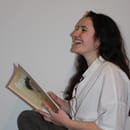It’s Canada’s 150th birthday! Though this is an important one, I’ve created a handy little list of some other Canadian milestones to recognize while we’re at it, to put this one into perspective.
1. 12,000 years (and maybe more) since First Nations arrived on the land we now call Canada.
First Nations survived and thrived in the harsh climate, respecting and taking care of the earth while still using what they could to sustain themselves. With a strong and long history of successful self-government and a variety of cultures that lived harmoniously around each other, First Nations existed on this land for literally thousands of years before Europeans colonized their land and exploited the people living there.
2. 170 years since Egerton Ryerson wrote and published recommendations for education for Aboriginal peoples.
His recommendations, including ones which state Aboriginal peoples should be educated in separate boarding which teach English-only and denominational values, were the foundation for the residential schools to be opened in Canada.
3. 137 years since the first residential schools were opened in Canada.
Residential schools were government-funded and church-run schools set up to assimilate Aboriginal children into dominant Christian culture and eliminate their parents’ involvement in their intellectual, cultural and spiritual development. The over 150,000 children at the residential schools were forced to be removed from their families, weren’t allowed to practice their culture and many suffered from physical and sexual abuse, sub-standard education, malnourishment and severe punishments.
4. 99 years since some women won the right to vote in Canada.
Suffragists campaigned at all levels of government to earn the right to vote for women, and succeeded in doing so for certain women in 1918 at a federal level. This did not include Asian Canadians or Aboriginal Canadians.
5. 78 years since an immigration agent in Canada responded, “None is too many” when asked how many Jewish people would be allowed into Canada after the war.
Canada accepted only 5,000 Jewish immigrants during their persecution in the 1930s and 1940s, compared to the 200,000 the United States accepted.
6. 69 years since Asian Canadians won the right to vote.
The Dominion Elections Act was finally repealed, meaning it was no longer legally allowed to exclude people from voting based on race.
7. 57 years since Aboriginal Canadians won the right to vote.
Before 1960, some Indigenous peoples could gain the right to vote only by giving up their Indian status through enfranchisement. Indian status was granted to individuals under the Indian Act, and is a legal recognition of their First Nations heritage and grants rights such as the right to live on reserve land. Some Indigenous people lost status not by choice as well—the Indian Act stated those with Indian status who earned a university degree or became a doctor, lawyer or clergyman were automatically enfranchised. In 1960, the federal right to vote was granted to First Nations so that they could vote without losing status.
8. 34 years since the last segregated school in Canada closed.
The Common Schools Act, passed in 1850, was supposed to be implemented to divide school along religious lines. However, the Act was used to created segregated schools for Black children. The very last one, in Nova Scotia, closed in 1983.
9. 21 years since the last residential school in Canada closed.
The social and cultural impacts of residential schools include a loss of culture and language for the Aboriginal peoples who spent their childhood in the schools and lasting trauma from their experiences.
10. 17 years since the Canadian Charter of Rights and Freedoms acknowledged sexual orientation.
Though the Constitution was repatriated and the Charter was adopted in 1982, it wasn’t until 1995 that Section 15 of the Charter, guaranteeing right to the equal protection and benefit of the law without discrimination specifically mentioned sexual orientation.
Though Canada may have been officially declared Canada 150 years ago, it’s important to acknowledge that this land and the people who live on it existed long before European colonizers–and that not everyone has experienced the official national narrative of free, safe, accepting Canada for all 150 years.
This list has been put together with the help of The Canadian Encyclopedia.


